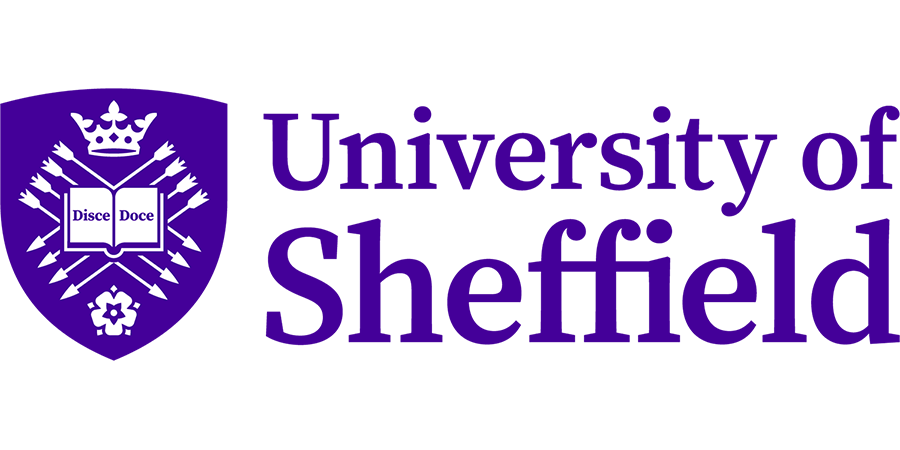Research Assistant
University of Sheffield - School of Medicine & Population Health
| Location: | Sheffield |
|---|---|
| Salary: | £32,080 to £36,636 |
| Hours: | Full Time |
| Contract Type: | Fixed-Term/Contract |
| Placed On: | 3rd October 2025 |
|---|---|
| Closes: | 26th October 2025 |
| Job Ref: | 1640 |
Applications are invited for the post of Research Assistant to join Sheffield’s Translational Neuro-Oncology Research Group led by Prof. Spencer Collis (Science), Mr. Ola Rominiyi (Translational) and Mr. Yahia Al-Tamimi (Clinical) in collaboration with Prof. Munitta Muthana based within the Divisions of Neuroscience and Clinical Medicine at the University of Sheffield’s Medical School. The overarching research goal of the Sheffield’s Translational Neuro-Oncology team is to identify and develop new targets and treatment regimens to improve the clinical management of high-grade glioblastomas and other related brain tumours. More information on the Collis and Rominiyi laboratories can be found here: https://www.sheffield.ac.uk/medicine/people/oncology-metabolism/spencer-collis, and https://www.sheffield.ac.uk/smph/people/clinical-medicine/ola-rominiyi. More information on the Muthana laboratory can be found here: https://sheffield.ac.uk/smph/people/academic/clinical-medicine/munitta-muthana.
We are seeking a highly motivated, practically skilled, well organised and semi-independent individual to work on a 3-year project funded by Yorkshire Cancer Research to carry out preclinical assessment of DNA repair inhibitors in combination with tumour treating fields (TTFields) therapy with a focus on in vivo assessment, following recent promising cell-based studies by our team.
This will involve working within our team to establish new brain-invasive orthotopic patient-derived xenograft (PDX) models of glioblastoma using cells from within our within the Sheffield Living Biobank of patient-derived primary glioma stem cell-like (GSC) culture models, and conducting detailed efficacy studies assessing DNA repair inhibitors in combination with TTFields and standard of care therapies in PDX (subcutaneous and orthotopic) and syngeneic (orthotopic only) models. Our team also has extensive experience in delivering TTFields therapy to patient-derived GSCs and will have access to clinical samples from patients treated with TTFields and immunotherapy as we build an integrated bench-to-bedside TTFields research platform.
You will be a practically skilled, well organised, flexible and committed Researcher with strong in vivo (mouse) experience who will join a diverse laboratory team to conduct laboratory research on a semi-independent basis under the direction of Prof. Collis, Prof. Muthana and Mr. Rominiyi.
You will be expected to; design, execute and evaluate experiments; keep excellent experimental records; prepare reports regularly and feed back to other members of the research group. You are also expected to contribute to the preparation of scientific manuscripts, attend and deliver seminars/lab meetings, help supervise undergraduate students and advise post-graduate research students as necessary as part of a collaborative research team. The successful candidate should be strongly motivated, self-driven, able to accept direction and be an excellent team player. Excellent communication and interpersonal skills are expected.
Ideally you should have a PhD (or be close to completion) in molecular or cell biology, or have appropriate equivalent experience, with good experience in in vivo models, but this is not essential.
You will have experience in small animal research with mice including tumour cell implantation, monitoring and assessment, imaging (e.g. IVIS & small animal MRI), blood sampling, and post-mortem analyses of tissues including immunohistochemistry and immunofluorescence – with a current or recent Home Office Personal License (PIL). Additionally, you will have experience in mammalian cell culture growth and manipulation (preferrable stem cell culture), western blotting, immunohistochemistry, cell survival assays (preferably including clonogenic assays). Expertise in intracranial orthotopic tumour cell implantation in rodents would be advantageous, but not essential.
The University of Sheffield Schol of Medicine and Population Health bring together researchers to translate scientific discoveries into clinically meaningful advances. More information about the School can be found here: https://sheffield.ac.uk/smph/research.
Advert information
Type / Role:
Subject Area(s):
Location(s):









